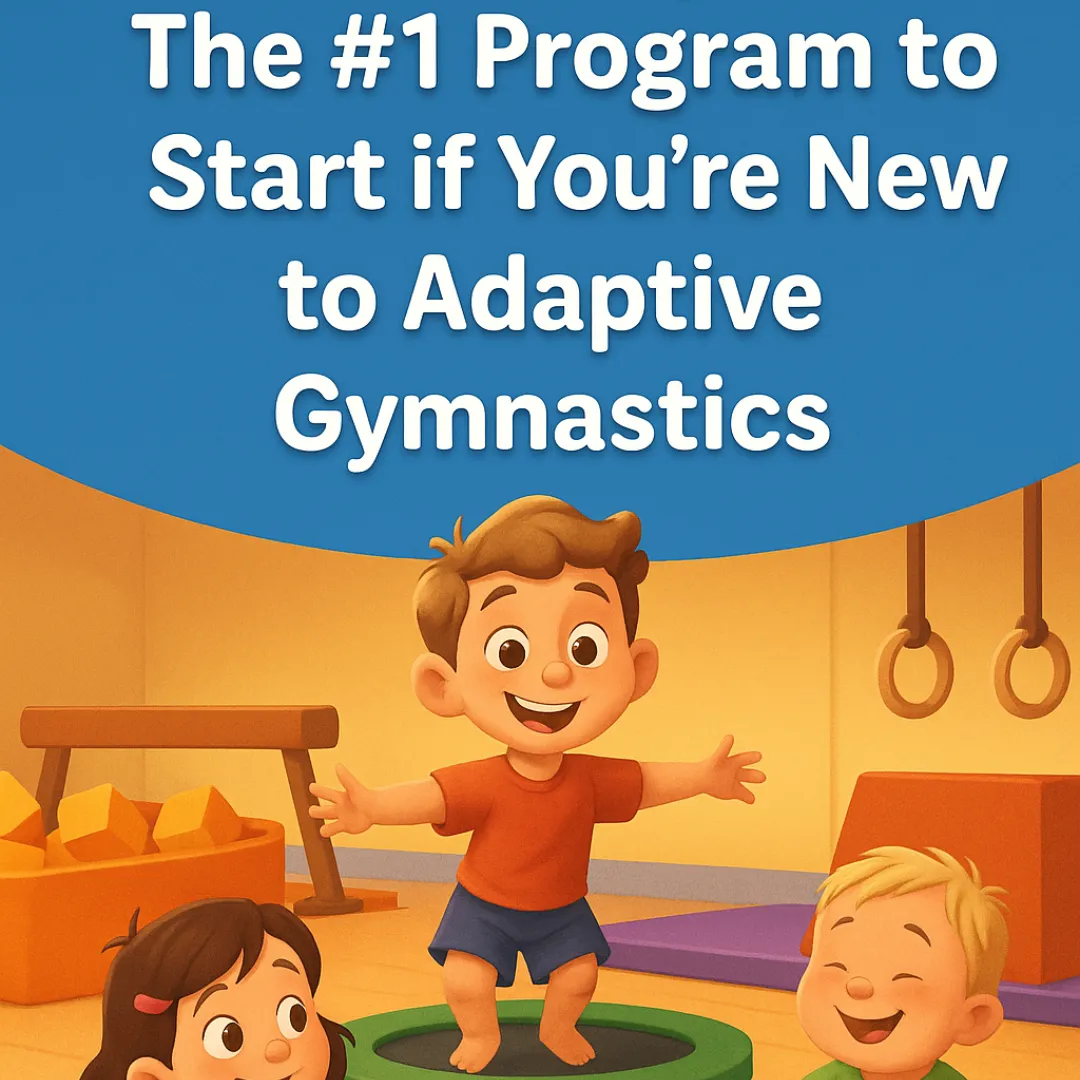
The #1 Program to Start if You’re New to Adaptive Gymnastics
The #1 Program to Start if You’re New to Adaptive Gymnastics
If your gym has ever thought about becoming more inclusive but felt overwhelmed by the idea of launching a full adaptive program — you’re not alone.
Many owners and coaches want to do something for neurodivergent athletes and athletes with disabilities but feel like they need a big budget, extra staff, or a mountain of training before they can start.
Here’s the truth: you don’t.
One of the easiest, lowest-barrier, and most impactful ways to begin is by offering Sensory Sessions.
What Are Sensory Sessions?
Think of a sensory session as open gym with intention — a dedicated time for neurodivergent individuals and people with disabilities to explore, move, and play in a quieter, more flexible environment.
While the concept originally gained popularity for autistic individuals and those with sensory processing differences, ADHD, or Down syndrome, sensory sessions are not limited by diagnosis. They’re for anyone who benefits from a more supportive, choice-based environment.
Why Gymnastics Facilities Are Perfect for This
You already have what’s needed: trampolines, foam pits, mats, beams, bars, ropes, and open floor space.
The magic isn’t in buying new equipment — it’s in how you set up the space, pace the session, and welcome participants.
By adjusting lighting, sound, and expectations, you can create an atmosphere that encourages exploration, comfort, and independence.
Goals for Participants: Fun & Freedom
For many neurodivergent kids, daily life is full of directions:
Do this. Stand here. Try it this way. Hurry up.
Sensory sessions flip that script.
They give athletes the freedom to:
Choose their activities
Move at their own pace
Rest when they need to
Play in ways that feel safe and fun to them
There’s no rush, no pressure to “keep up,” and no rigid rules that strip away joy. Just a space where they can feel safe, successful, and in control.
Why It Matters for Gyms: Community & Business
Sensory sessions don’t just benefit participants — they benefit your gym, too.
From a community perspective, they give you a direct connection to families you may not otherwise meet. You’ll hear their stories, learn their needs, and find ways to serve them better. Some may be interested in structured classes, adaptive events, or homeschool programs.
From a business perspective, sensory sessions can:
Fill your gym during off-peak hours
Create a low-cost, high-value program
Act as a marketing funnel for other classes or programs
Build your reputation as the most welcoming gym in town
Goals for Parents: Connection & Community
Parents are the unsung heroes of sensory sessions.
These events give them the chance to:
Relax in a welcoming, non-judgmental space
Meet other families with similar experiences
Play alongside their child without pressure or expectations
I’ve seen parents start on the sidelines and end up laughing on the mats with their kids — all because the environment was built for them, too.
Other First-Step Adaptive Coaching Ideas
If you’re not ready for sensory sessions right away, there are still other easy ways to “test the waters”:
Partner with a local homeschool group for neurodivergent kids
Invite a special education class for a field trip
Host a one-day adaptive event, like an “Everybody Can Fly” trampoline day
These options let you experiment, learn what works for your gym, and start building a culture of inclusion without committing to a full adaptive program yet.
The Bottom Line
Not every gym is ready to jump straight into a full adaptive program — and that’s okay.
But every gym can start somewhere.
Sensory sessions (or another low-pressure adaptive event) give you a way to start small, meet your community’s needs, and build something meaningful without a massive investment.
If you’re ready to start sensory sessions at your gym, we’ve put together a course just for you to help you get started.
